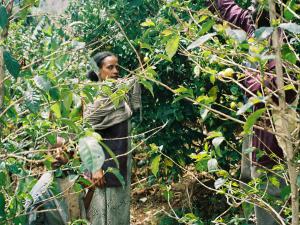Should we rename the concept of “informal economy” to a more positive one?
Discussion details

Question from a member: we need a “Meaningful justification on why an important sector which employs millions of people across the world should be classified as informal economy. I find the term demeaning as the mere fact that most of the workers in the sector are not registered should not be the only reason to classify it as informal. On the alternative, the issue is to find a positive description would be necessary for the sector.”
The terms “informal economy” and “informal employment” do not inherently have the negative association that many give them today. This has its roots in the confusion with a “shadow”, “underground” and “illegal” economy. Additionally, some economists continue to use the terms “informal”, “shadow”, and “underground” as if they were interchangeable, when they are not.
Since the creation of an international definition of the “informal sector” in 1993 (and 2003, for informal employment), the concept of informality in relation with employment has lost its much of its negative image. These definitions clearly establish a definite separation between an informal economy and a criminal one. Common usage of the term “informal economy” does still associate it with a “shadow” economy, and this is a misunderstanding. Possibly, projects working with formalising the informal economy could work to eliminate this confusion.

It is worth mentioning that many countries have conducted surveys on their informal sectors, which demonstrates that they understand how these activities represent an important part of their economies. This understanding may lead to a kinder approach to labelling the informal economies, in the future.
“Since its origin in the 1970’s, the term “informal sector” has been a divisive one. One school of thought (Gerry, Hugon) preferred to use the notion of “petty production”. Others (Bugnicourt, Castel) suggested the terms “people’s economy” or “popular economy.” Yet others the “spontaneous economy” (Penouil) and even the “people’s spontaneous economy” (De Miras).”
So, although the informal economy is not necessarily an illegal one, it is true that the law is not commonly enforced within it. However, this is not due to a fault within the informal economy, but with the law itself. These laws were not designed with the informal economy in mind, so it is simply not possible for it to function according to them. Much of the work done on promoting an enabling environment for the informal economy addresses this issue. The informal economy can be formalised which will also help improve access to decent work. Also, while decent work conditions are rare within the informal economy, it still does have inherent benefits. It generates income, and can create successful micro-enterprises.

To summarize, the negative connotation of informal economy with an illegal economy is simply a misunderstanding: by international standards, the informal economy is simply not formal, and nothing more. Instead of condemning those who depend upon the informal economy as criminals, projects and governments need to work on creating a formal environment and legal system for their work. To answer your question, we should not change the concept of an informal economy to a more positive one, because it already is.
(2)
Log in with your EU Login account to post or comment on the platform.
Jacques thank you for this brief.
For my part, it is certain that any analysis poses the central question: should we have interpret this based solely on the concept of the "informal" adjective or instead on the actual social or economic value of the economy that is referred to as "informal"? The concept of the informal economy draws its meaning from an economic historical context promoted by the states. It is in opposition to efforts to anchor and promote law based systems that govern the operation of companies in public administration or the private sector.
It is true, so many derogatory epithets, negative interpretations were used to confine this type of economy in its "informality", often by national decision makers (public authorities...).
Paradox of paradoxes! In the Côte d'Ivoire, as in several African countries and elsewhere, the states create structures by official decree to act as an interface between the "informal traders" and itself that is the “State” ... Chambers of Trade, Chamber of Commerce etc. This testifies to an insidious official recognition that has decreed, accepted and validated of "the informal economy".
The economic and social value of Informal Economy: However, the operational objectives in the field, bring us to mitigate this informal connotation with an analysis that takes into account the social and economic dynamics of these informal enterprises. We must consider their ability to create wealth in the population; which substantially strengthens the quality of life of households (school attendance, payment of medical expenses, food security within households, etc....). Beyond these usual indicators of well-being, one of the added values of informal economy activities is their role in building social capital and a sense of community inclusion of their members.
In my research (Lassiné Bamba, 2014), independent of the size of their "informal" businesses, these operators increase their ability to participate in their communities initiatives, neighbourhood, extended family, villages, etc. ... through sharing assets in kind at funerals, baptisms, marriage. They thus fall within a local system of exchange of gifts and counter-gifts (Marcel Mauss), which promotes socially, and gives them a kind of "social utility”.
Poverty is not necessarily only material in our Ivorian communities. It is measured by the degree of social participation and recognition that community members given to a person….
In short, the assumption of changing the informal economy concept for a positive perception would reinforce the dualism between "formal and informal" concepts, which is more macro development logic. However, it is not very objective if we take into account the economic and social potential of these types of economies. It thus remains relevant to consider the social representations and perceptions of those operators who participate in economic activities under the label "informal".
What are the perceptions of traders’ face-saving concept "informal" in which governments are trying to keep them there? To what degree, and to what extent, this perception does it influence their level of social inclusion?
Thanks a lot Jacques for this brief and the detailed explanation on how the term informal economy developed. I have a lot of interest and concern about the use of this term which could possibly be based on my professional orientation. I will give more detailed opinion on it next week however for the time being I find it necessary to focus only on one tiny area, the law and informal sector. If my interpretation is right (it may as well be incorrect), then the basis of informality in the issue under discussion is only to be found in the law(s). My opinion is that the law is human creation and and should serve human interests and not the other way round. If therefore it is because of the law that some important sectors of the economy are referred to as infomal then it is the law that is obsolete and needs to be changed. I am also a bit skeptic with the the now popular opinion that the "informal economy" should be registered to make it formal. If that were to be the case in the third world like Kenya and taking into consideration the stringent registration regime, then most of those engaged in the sector would have to wind up which would be very unfortunate. This however does not apply to this with ability who simply prefer to evade the law who should be dealt with legally. I would therefore be a little bit afraid of supporting campaign or argument for registration of the unregistered sector as the solution simply to make them formal for those sectors are already formal save for the fact that the law is biased against them. On the contrary, my focus would be on promoting enabling environment and changing the bad law to give due recognition to the sector. I really appreciate your input onto this issue but hope you understand the basis of my argument.